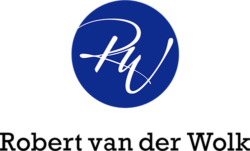Approximately 20% of professionals encounter depression at some point in their careers. While not claiming the top spot on the list of professional hazards, depression unquestionably ranks high among mood disorders. With such a substantial portion of executives affected, it becomes imperative to ensure the preservation of mental and emotional resilience. Furthermore, in the event depression does cast its shadow, it's crucial to be aware that alternatives exist beyond relying solely on chemical interventions that might leave you emotionally flat.
In this article, we'll explore ten strategies tailored for professionals, drawing on psychological insights and scientific research to provide a more holistic perspective.
1. Understand the Psychology of Professional Depression
The causes of professional depression have been a topic of debate for years. While biological factors like genetics have gained attention, lifestyle choices and cultivated patterns of behavior play a significant role, especially in professional settings. The key for professionals often lies in diversifying sources of self-worth. Relying solely on a partner, a lofty goal, a status symbol, or work can be detrimental. The more diverse your sources of self-worth, the more robust your self-image becomes.
2. Keep Moving, Professional Style
Numerous studies affirm that physical activity is instrumental in reducing depression. For busy professionals, incorporating regular exercise into their routine is vital. Whether it's brisk walks during breaks, short power workouts, or even dancing, physical exertion aids in releasing excess adrenaline and promotes the production of endorphins and serotonin.
3. Supplementation for Professionals
Professionals often face demanding schedules, and supplementing can be a practical approach. Three supplements stand out: Palmitoylethylamide (PEA), known for pain relief and anti-inflammatory properties, has shown benefits in managing professional depression. 5HTP, a precursor to serotonin, and GABA, a neurotransmitter blocker, can also be beneficial.
4. Sunshine for Professional Well-being
With professionals spending long hours indoors, especially during lockdowns, there's a risk of vitamin D deficiency. Exposure to sunlight, a natural source of vitamin D, can contribute to reducing professional depression.
5. Break Free from Professional Routines
While routines offer stability, professionals need to strike a balance. Overreliance on fixed patterns can lead to stagnation. Encourage professionals to break free from rigid routines and embrace variety.
6. Tune into Positive Professional Vibes
Professionals can benefit from listening to uplifting music or watching positive clips. Mirror neurons in the brain respond to energetic content, contributing to a better mood.
7. Cultivate a Supportive Network
Establishing connections with supportive colleagues, mentors, or friends can significantly impact one's mental well-being. Professional networks that foster positive communication can act as a buffer against depressive tendencies.
8. Mindfulness and Meditation
Incorporating mindfulness and meditation practices into a professional's routine can enhance emotional resilience and provide tools for managing stress. Scientific studies, such as the research conducted by the Center for Healthy Minds at the University of Wisconsin-Madison , highlight the positive impact of mindfulness on mental health.
9. Professional Development with a Purpose
Engaging in professional development that aligns with personal values and purpose can bring a sense of fulfillment. Pursuing goals that resonate on a deeper level contributes to overall job satisfaction and reduces the risk of professional depression.
10. Promote a Healthy Work-Life Balance
Striking a balance between professional responsibilities and personal life is crucial. Encourage setting realistic boundaries, taking breaks, and unplugging from work-related stressors, contributing to a healthier work-life equilibrium.
Professional depression is a significant concern, especially in the current challenging times. However, with tailored strategies that consider the unique challenges faced by professionals, it's possible to navigate through and emerge stronger. By understanding the psychological aspects, staying physically active, supplementing wisely, embracing sunlight, breaking free from rigid routines, tuning into positive vibes, cultivating a supportive network, practicing mindfulness, pursuing purposeful professional development, and promoting a healthy work-life balance, professionals can proactively manage their mental well-being.
Share this article if you found it valuable, and help others in your professional network benefit from these strategies.
If you're looking for personalized guidance on enhancing your professional well-being, consider scheduling a free coaching session. During this session, we'll explore strategies tailored to your specific needs, helping you navigate challenges and boost your overall professional satisfaction. Click here to schedule your session and take the first step towards a more fulfilling professional life.
